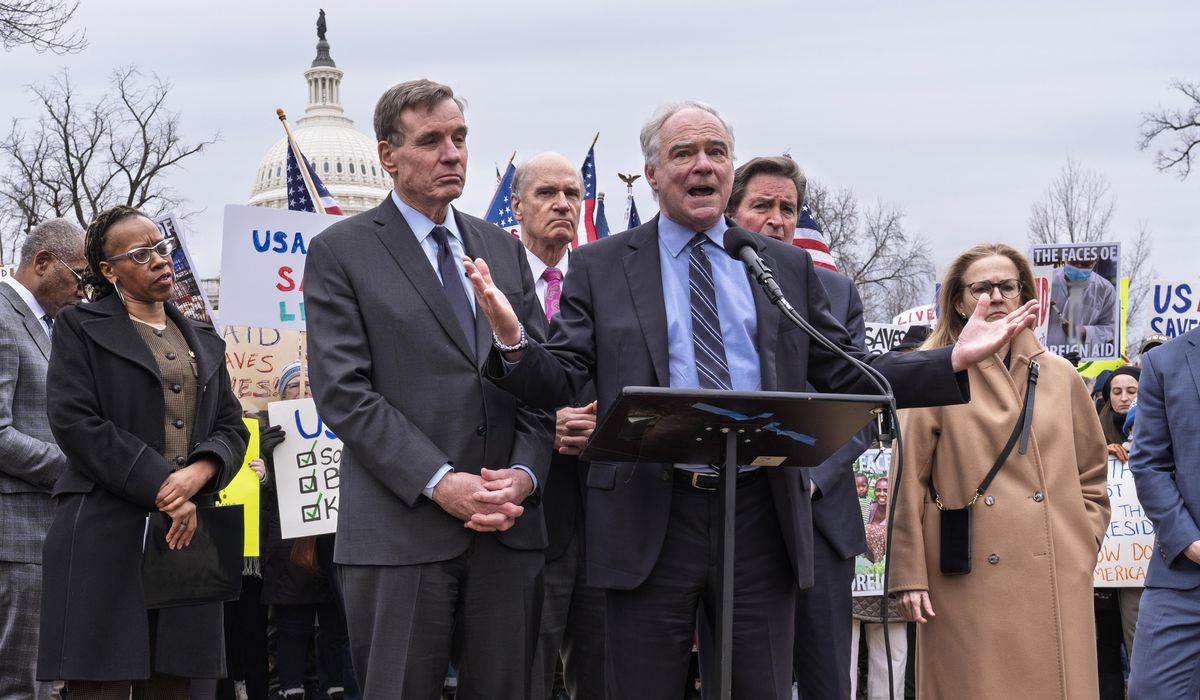


Don’t miss the full story from our staff writers, whose reportage is the basis of this article.
President Trump has ordered military strikes against Iran’s nuclear facilities without seeking prior congressional approval, sparking a significant constitutional debate over presidential war powers. The unilateral action has drawn sharp criticism primarily from Democrats, with some calling for impeachment proceedings.
Sen. Tim Kaine of Virginia led the opposition, arguing on CBS’s “Face the Nation” that Congress must authorize any war against Iran, emphasizing that the Constitution is clear on this requirement. He introduced a war powers resolution requiring congressional debate and approval before any military action against Iran, with the Senate expected to vote this week.
Vice President J.D. Vance defended the president’s authority, stating that Mr. Trump has clear constitutional power to prevent weapons of mass destruction proliferation. House Speaker Mike Johnson supported the decision, arguing that the president correctly assessed that imminent danger outweighed the time needed for congressional action.
The strikes have reignited long-standing tensions over the 1973 War Powers Resolution, which allows presidents to deploy troops for 60 days but requires congressional approval for longer commitments. Historical precedent shows presidents from both parties have conducted military operations without congressional authorization, including Reagan in Grenada, Bush in Panama, Clinton in Yugoslavia, and Obama in Libya.
The Trump administration briefed only Republican intelligence committee leaders — Rep. Rick Crawford and Sen. Tom Cotton — while excluding Democratic counterparts Jim Himes and Mark Warner from advance notification. This selective briefing has further inflamed partisan tensions.
Reps. Thomas Massie and Ro Khanna introduced bipartisan House legislation prohibiting military action against Iran without congressional approval. Rep. Massie criticized the administration’s justification, arguing there was no imminent threat to the United States and that Congress should have been recalled from recess for proper debate.
The constitutional clash intensified when Reps. Alexandria Ocasio-Cortez and Sean Casten declared President Trump’s actions impeachable offenses. Rep. Ocasio-Cortez characterized the strikes as a “grave violation of the Constitution” that could “ensnare us for generations” in conflict.
Secretary of State Marco Rubio defended the action by highlighting Iran’s advanced nuclear capabilities, stating they possess “everything they need for a nuclear weapon,” including delivery mechanisms and highly enriched uranium. However, critics noted that Israeli officials had previously claimed their bombing campaigns had already set back Iran’s nuclear program by two to three years.
The controversy underscores fundamental questions about executive power, congressional authority, and the balance between national security imperatives and constitutional governance in an era of evolving global threats.
Read more: Trump’s unilateral attack against Iran sparks debate over constitutional role of Congress
This article is written with the assistance of generative artificial intelligence based solely on Washington Times original reporting and wire services. For more information, please read our AI policy or contact Ann Wog, Managing Editor for Digital, at awog@washingtontimes.com
The Washington Times AI Ethics Newsroom Committee can be reached at aispotlight@washingtontimes.com.
